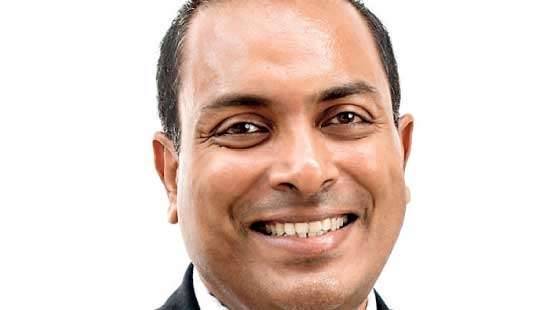

By Shabiya Ali Ahlam
As Sri Lanka is in the midst of exploring all possible avenues to bounce back from the upheaval set in motion by the coronavirus pandemic, the UNDP advised that efforts should be carried in a manner that makes sure every investment counts.
Acknowledging that it is important to look at the impact of investment going into recovery as there may have been significant damage to development and the Sustainable Development Goal (SDG) trajectory, UNDP Senior Economist, Kirthisri Rajatha Wijeweera stressed the need for improved focus on investments in the country.
“Greater emphasis needs to be put on Impact Measurement and Management (IMM) platforms and integrate it to the overall recovery plan to help Sri Lanka bounce back better. Given the fiscal space we are operating in, we need to make every investment count, now more than ever,†said Wijeweera at a high level virtual dialogue facilitated by the agency yesterday.
Shedding light on the pathways for financing COVID-19 recovery actions, the economist stressed that the financial plan for recovery needs to be hinged on a comprehensive macro stabilization frameworkÂ
post crisis.Â
He noted that reviving all avenues of financing, from public to private, will take time and couldÂ
be complicated.
On the public finance front, Wijeweera pointed out that the current crisis presents an opportunity to address some of the structural macro-fiscal weaknesses that exposes economies to vulnerabilities.Â
“As means of financing crisis response and recovery, several developing countries have been offered debt moratoriums. This may have to be supplemented by debt restructuring measures to give countries, particularly those that are highly indebted, more breathing space to get out of this crisis,â€Â
he said.Â
Sharing strategies explored by other economies in these ongoing times of crisis, the economist shared that some nations have advocated unique ideas in this regards.Â
 Such include the pitch made by Soros Fund Management Chairman/Hungarian-American billionaire investor George Soros, where he proposed that the European Union (EU) should issue Perpetual Bonds to finance COVID-19 recovery funds.
As the pandemic escalates, Soros proposed the issuing of Perpetual Bonds, which was identified as an ‘easy, fast, and low cost’ way to finance a EUR 1 trillion European Recovery Fund.Â
According to Wijeweera, Perpetual Bonds or its equivalents have been used in the past in face of crisis to counter large financing needs.Â
The economist quoted the United Kingdom as an example as it used such bonds, known as Consols, to finance Napoleonic Wars and the First World War.
Six women have already received services from the newly established sperm bankMore than 50 men…
The Sri Lanka Tourism Development Authority (SLTDA) has reported that a total of 229,298 tourists…
The Colombo High Court has sentenced former Chief Minister of the North Central Province S.M.…
Shammi Silva, who was recently re-elected uncontested as the Chairman of Sri Lanka Cricket (SLC)…
The Department of Motor Traffic (DMT) has made it mandatory to provide the Taxpayer Identification…
The Inland Revenue Department has announced that individuals earning less than Rs. 1.8 million annually…